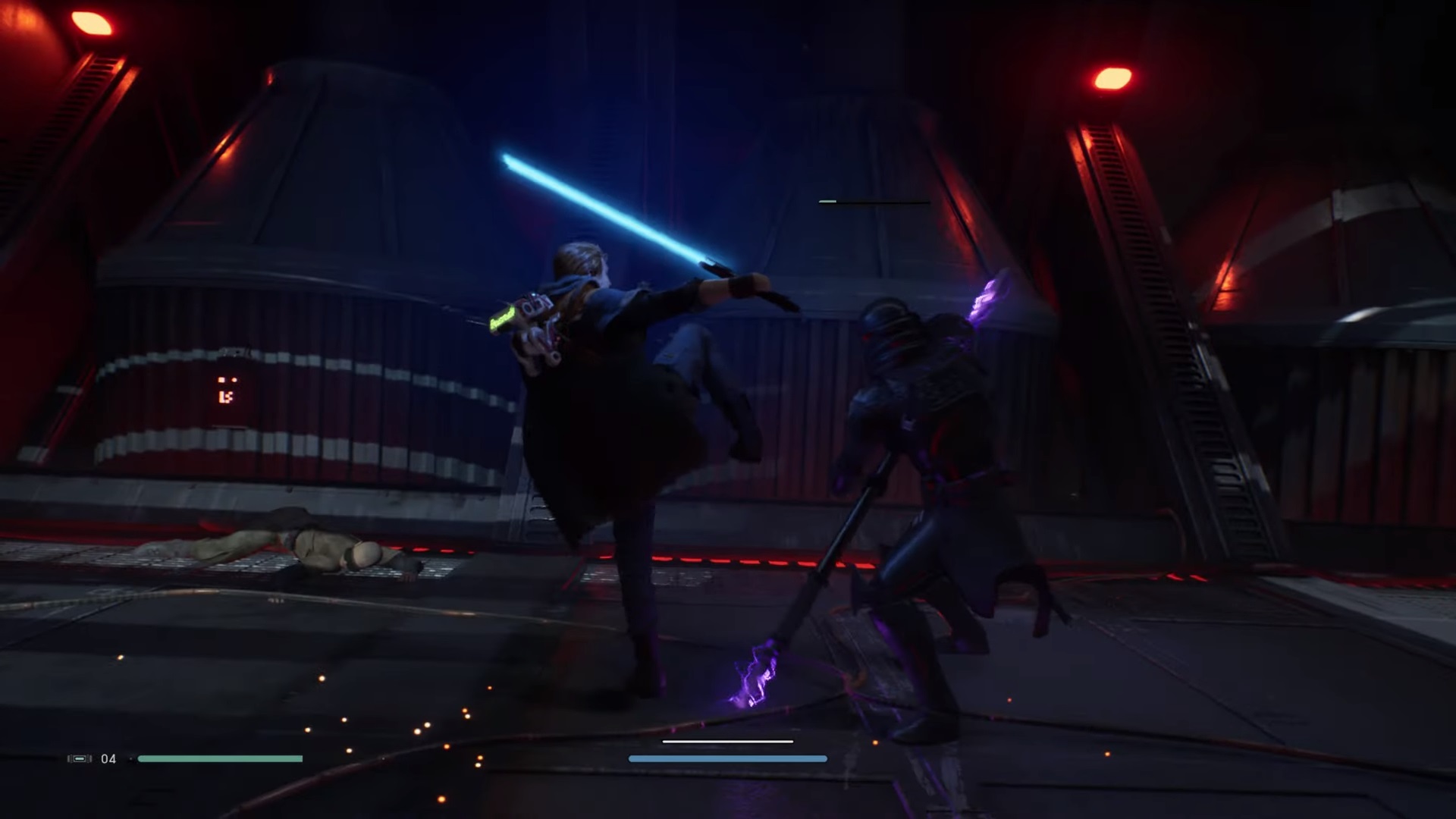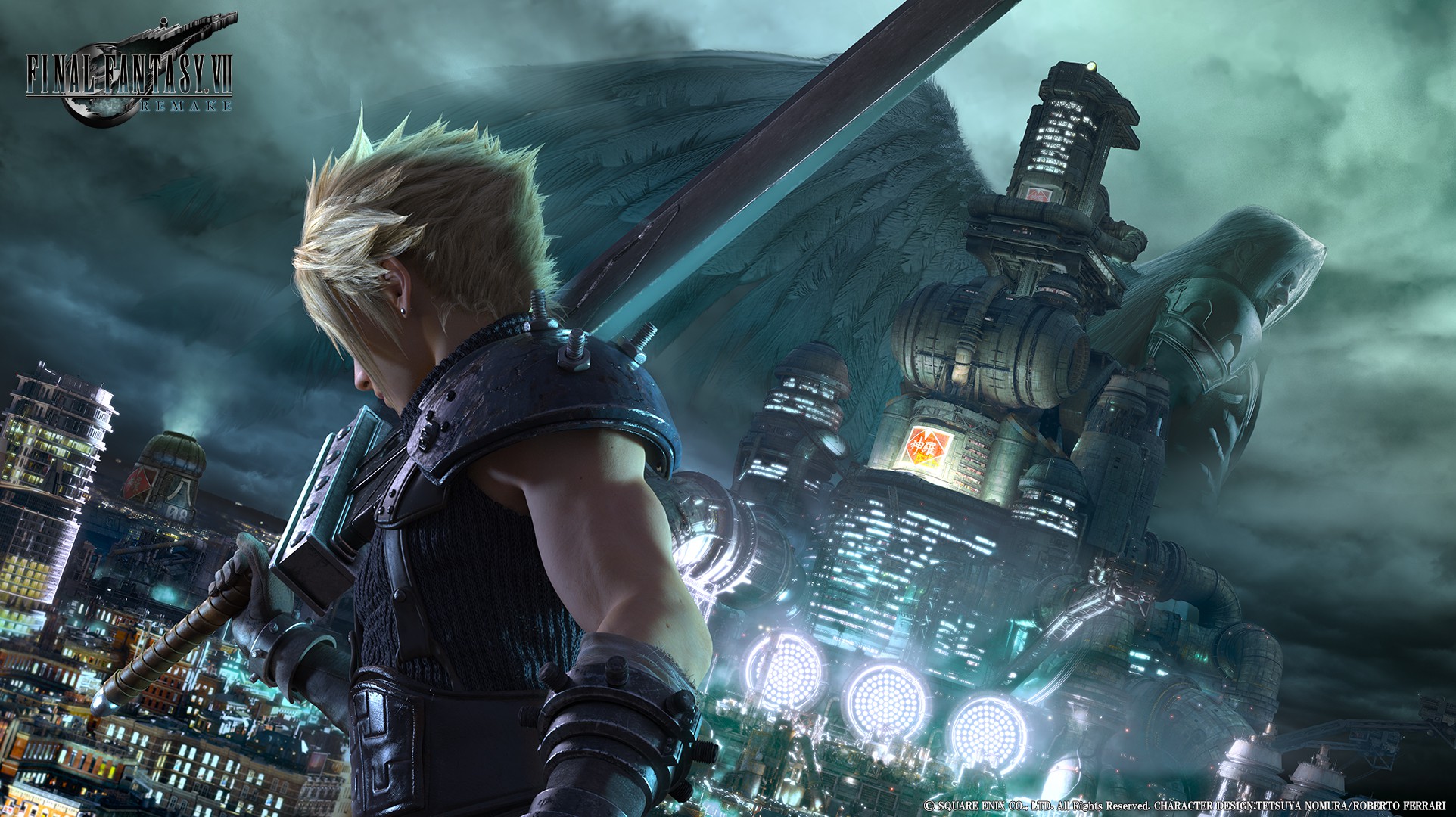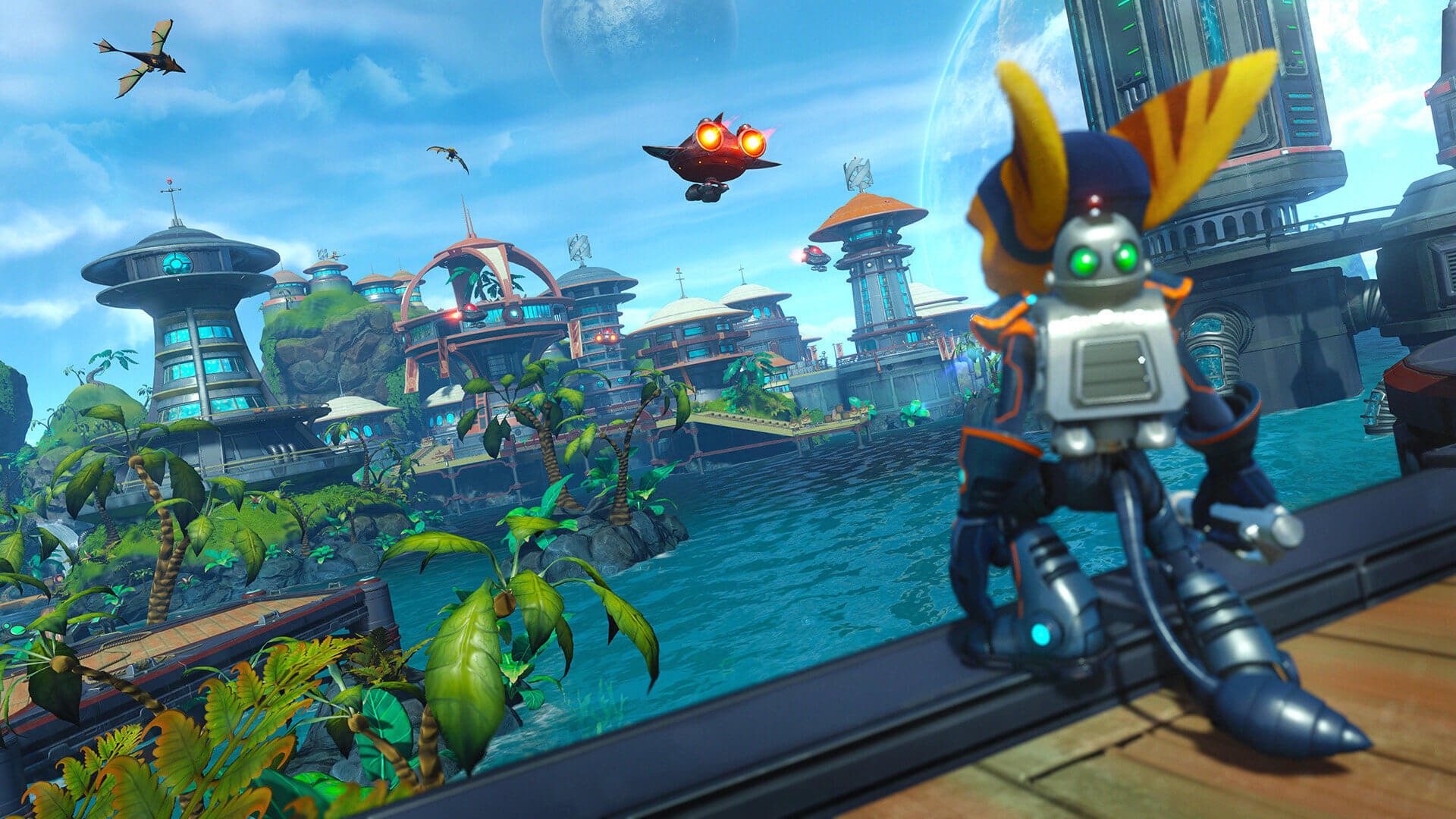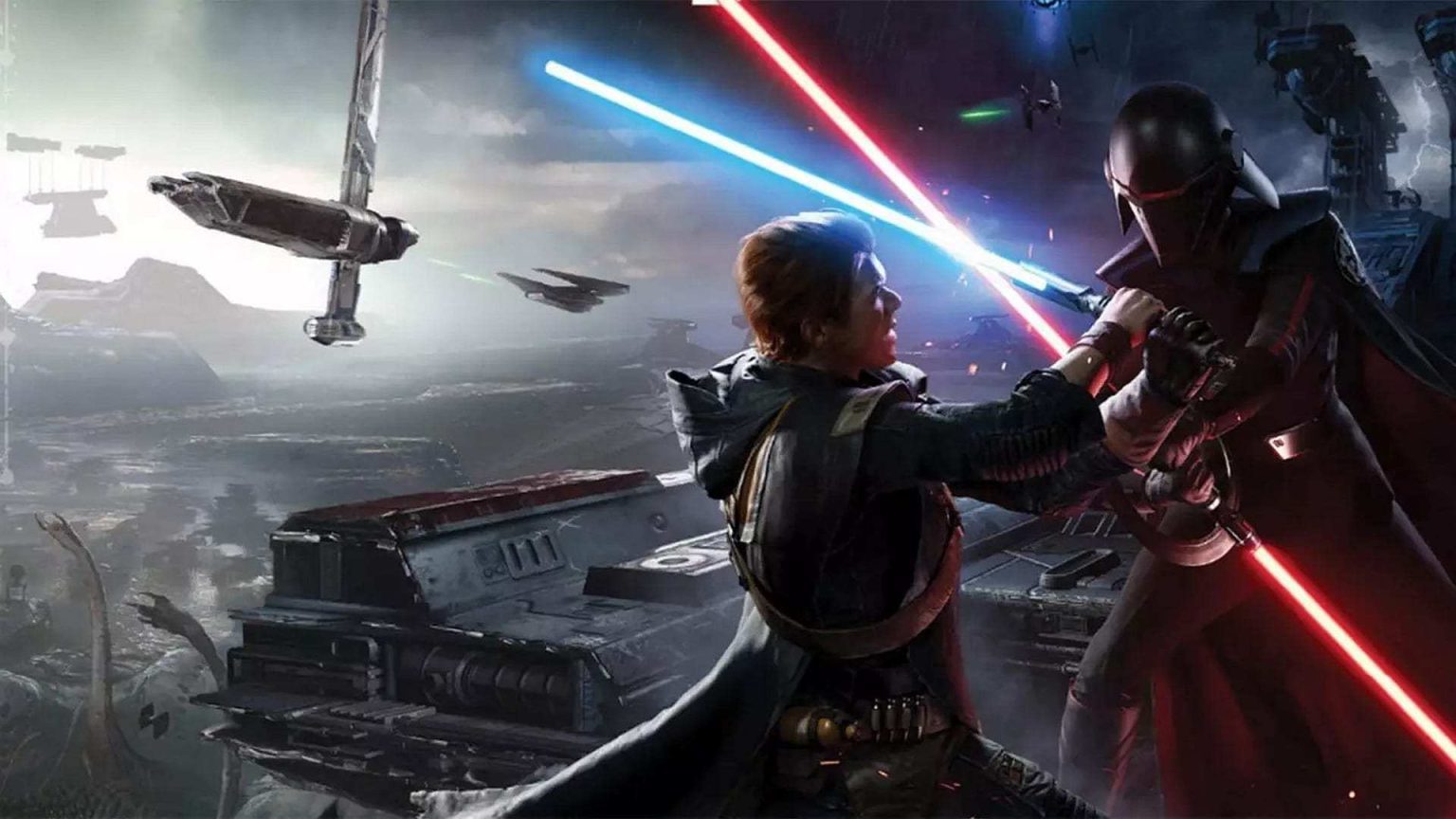It’s been a minute! For this latest edition of Punished Notes, I discuss Jedi: Fallen Order and Tekken 7. I also provide my hot take on review scores, along with plenty more in the oh-so-beloved Lightning Round. Plus, the movie/TV section makes its triumphant return to the internet!
Jedi: Fallen Order Provides the Nuanced Takes Star Wars Films Don’t
Spoilers ahead for Jedi: Fallen Order and The Rise of Skywalker.
My biggest gripe with most Star Wars films is that they ask difficult questions yet refuse to provide difficult answers. Even in the franchise’s more subversive entries, the good guys either win in the end, or have their goodness reinforced as the base turpitude of the opposition is put on full display.
The Last Jedi probably asks the most interesting questions, though these supposedly tough questions still ultimately have neat conclusions. Should the Jedi end? Yes… well, maybe not, since Rey is good and she’s a Jedi! Can Kylo Ren be redeemed? No… well, except he sort of does by sacrificing himself in The Rise of Skywalker. Are there really “good guys” in any war? Ultimately, the film is structured for us to clearly root for one side over the other.
While J.J. Abrams and Kathleen Kennedy have resurrected this beloved franchise only to largely play it safe thematically, the folks over at Respawn took a different route with Jedi: Fallen Order, a game where the player always knows they’re on the right side but not whether they’re always making the right choices.

In Fallen Order, former Jedi trainee Cal Kestis is tasked with finding a map that will locate force-sensitive younglings who can help restore the Jedi order. In embarking on this quest, Kestis must fight his way through hordes of Imperial soldiers and rare beasts—not to mention survive unbearable environmental hazards—all so he and his crew can find a way to stop the Empire.
If only it were that simple.
Throughout his journey, Cal must face a series of dilemmas that challenge his faith in the Jedi. Sure, he helps a group of rebels fend off an invasion of Kashyyyk. But when he returns to the planet later on, he finds nothing but ruin and desolation, as the Empire sends even more soldiers to lay waste to the Wookiee stronghold. As Cal visits the ruins of ancient force-sensitive beings, he finds tales of Jedi wreaking havoc on innocents, manipulating native populations, or otherwise failing to protect civilians in the most dire of times. Not only were the Jedi imperfect, Cal learns; it’s possible they can’t even do much to help if they do come back.
Cal’s relationship with crewmate Cere Junda serves to highlight this point of tension. Her sordid past and hope for redemption complicate Kestis’ view on everything, from his own relationship with the Force to the purpose of the Jedi order itself. Cere, the former Jedi who recruits Kestis for this mission, was tortured into giving up her Padowan to the Empire years prior. That Padowan ultimately became a tool of the Sith (as well as the game’s primary antagonist).
Cere admits she was nearly seduced over to the Dark Side. Yet instead of fending it off and continuing to fight back as a Jedi, she cut herself off from the Force completely. While Cal bristles at the notion of a Jedi turning on their own kind, he later on empathizes with Cere, knowing the fall of her order was inevitable regardless of what she did. He eventually allows her to move on, though he knows she will never truly be exonerated.

Jedi: Fallen Order consistently forces the player to contend with these challenging questions, yet largely avoids giving the simplest of answers to them. Did it make sense for the rebels to try and save Kashyyyk, even if their failure resulted in more deaths? It’s tough to say, since the act of militant resistance appeared justifiable at first. Should the Jedi order end forever? Well, Cal ultimately destroys the device that would help him find the young Jedi, since he does not want to put them at any further risk, so who knows? Plus, the game identifies how Jedi and Sith are not the only force-users in the galaxy, so maybe the Jedi aren’t even necessary. Should Cere be forgiven over how she failed her Padowan? At the end, it’s not really for us to decide, as the people now in her life understand that she was in an impossible position and will have to live with the guilt regardless.
The game is by no means the most nuanced exploration of warfare, resistance politics, or fascism. But it at least asks the player to really think about the role of an order of so-called “good guys,” failure, and forgiveness. If only the movies had the courage to do the same.

Tekken 7 is Good, But Also Kind of Pointless
If you took 1998’s Tekken 3, updated its graphics and sound, and put it next to 2017’s Tekken 7, would you be able to immediately tell which was which?
Whereas most game franchises that survive the test of time do so through continual innovation or evolution, the Tekken franchise has remained largely consistent. Which is a nicer way of saying it’s pretty much been the same for the past two decades. Surely, fans of the franchise (and fighting games in general) can point to incremental improvements in each Tekken game over the years. However, the underlying philosophy that defines the series remains intact to the point that the only truly distinguishing factor is technological in nature (i.e., improved graphics, sound, and performance).
In my brief time with it, I found myself enjoying a lot of what’s inside Tekken 7. The gameplay is crisp and deliberate as always, the story mode is as ridiculous and explosive (as I would expect from a fighting game), and many of the combos have been streamlined in such a way that a novice can make their way through most CPU battles. Purely as a fighting sim, Tekken 7 delivers on its promise of refined, classic gameplay, and it deserves credit for how well it executes on its intended goals.
Still, I have to wonder why Tekken 7 needs to exist beyond the desire to have a Tekken game available on the current generation of consoles. It provides very little new content outside of some DLC fighters (including Negan from The Walking Dead for some reason) and an absurd plot I can guarantee nobody actually cared about (seriously, does anybody give a damn about Tekken lore?).
Compare Tekken 7’s slate of gameplay options to, say, that of Super Smash Bros. Ultimate, which provided a completely new style of Classic Mode, new gameplay buffs in the form of Spirits, and even a fresh take on single-player with World of Light. Tekken 7 does not provide a lot of new gameplay options, so one’s enjoyment of the experience will be tied purely to how much they like the fighting mechanics and nothing else. It’s a good game in a vacuum, but given the incredible strides made by so many important franchises over the years, is that really enough?

SHOOT REVIEW SCORE ARGUMENTS INTO THE SUN!!!
I’m not the biggest fan of review scores in general or the way so many gamers cling to Metacritic aggregates as a measure of quality. Still, I understand why people care about such scores, since they often serve as a moderately effective way of describing how someone feels about a game they played. The numbers don’t do much for me, but I see why they might for someone else.
That said, actual arguments or discussions over what score a reviewer should have given a game? Total nonsense, and frankly everyone needs to knock it off with this shit. Seriously, who cares? If someone thinks a game is a 7/10 and you think it should be a 9/10, then that’s that! Don’t go after them yelling about this (not-actually-that-low) score; just enjoy what you enjoy!
I know this may seem like a dumb rant about something inherently meaningless, but I recently listened to a gaming podcast discussing games that deserve a 10/10 rating, and it made me want to tear my hair out. Why? Because the arguments in that podcast amounted to people making unscientific arguments as though they were scientific. Ultimately, that’s my problem with review scores: They are entirely subjective, yet so many people view them like they’re not.
Also, arguments about review scores largely revolve around people splitting hairs over what exactly someone means by every numerical value. What I consider a 9/10 might be what someone else considers an 8/10, so in that scenario, we both might have the same words to say about that game, just not the same grade.
It’s all nonsense, and these arguments should be stricken from gaming discourse forever. Rant over.

Lightning Round!!!!!!!!!!!!
-As someone who has never completed a single Final Fantasy game and has no attachment whatsoever to PS1-era role-playing games, I’ve got to say: I’m incredibly impressed by what I experienced in the Final Fantasy VII Remake demo. Within a matter of minutes, I quickly went from not caring at all about this game to potentially being a day-one buyer. Also: Demos are cool! We need more demos!
-Another quick note on Fallen Order: One of my favorite aspects of the experience is that it manages to feel like its own kind of game without feeling too much like just another Star Wars game. The game’s excellent approach to worldbuilding, combat, exploration, and difficulty sometimes made me forget that this story takes place within arguably the most famous media franchise of all time.
-I finally got around to playing Mario + Rabbids: Kingdom Battle last month. While it’s a solid enough tactical RPG, it definitely overstays its welcome, as the last world feels like a slog and not especially worthy of my time.

-The 2016 re-imaging of Ratchet & Clank proves that there will always be a demand for crisp 3D platformers where you blow stuff up.
-Speaking of 3D platformers: Banjo-Kazooie stands the test of time largely because it maximizes small portions of space so that the player never gets bored. This strength highlights my biggest issue with 2017’s Yooka-Laylee, which had bigger worlds than Banjo but too much emptiness.
-I can’t explain it: I just can’t get into Horizon Zero Dawn. It’s pretty, at times breathtakingly so, and the combat is good enough, but for whatever reason I get bored after playing for 45 minutes at a time. Maybe something will click later on, but from what I have played so far, I’m just not that compelled to keep going.
-I have yet to play an Animal Crossing game that I truly love, but damn New Horizons looks tempting.
-Does anybody else stress-buy things? I’m not talking about buying 6,000 rolls of toilet paper in a panic over a global pandemic; I’m talking about having a tough day at work and buying three video games and four books from Amazon. I don’t understand why this happens, but whenever I’m feeling a lot of stress or anxiety, my brain turns to one of two things: 1. Junk food and 2. Purchasing a bunch of stuff at once. You’d think spending money recklessly would add to the stress, but for some reason it’s oddly therapeutic. I can’t be alone on this, right?

MOVIE/TV TAKES:
-The way NBC has marketed Good Girls is in stark contrast to the actual experience of watching it. The network wants to make it seem like a bonkers Edgar Wright-style comedy series, while the show itself is more like a less intense Breaking Bad with some humor rolled in here and there. Also, its main strength as a show is not in its exploration of crime and lies; the show thrives in its depictions of the struggles working class people face on a daily basis, and how those struggles can make even the most desperate actions appear completely justifiable.
-If Once Upon A Time In Hollywood has convinced me of anything, it’s that Quentin Tarantino is incapable of making a film without intense violence and/or racial slurs. I still liked it, though.
–Birds of Prey is a colorful, fun action film whose underperformance at the box office is a real shame, as it’ll likely be forgotten in a matter of weeks. It deserved better.
-Pixar has spoiled its viewers in such a way that a perfectly fine movie like Onward is somehow viewed as a milquetoast disappointment.
-It might not seem like it now, but Parasite’s Best Picture win at the Oscars really could mean something for Hollywood at large. I’m not really sure what, but definitely something.
Sam has been playing video games since his earliest years and has been writing about them since 2016. He’s a big fan of Nintendo games and complaining about The Last of Us Part II. You either agree wholeheartedly with his opinions or despise them. There is no in between.
A lifelong New Yorker, Sam views gaming as far more than a silly little pastime, and hopes though critical analysis and in-depth reviews to better understand the medium's artistic merit.
Twitter: @sam_martinelli.










